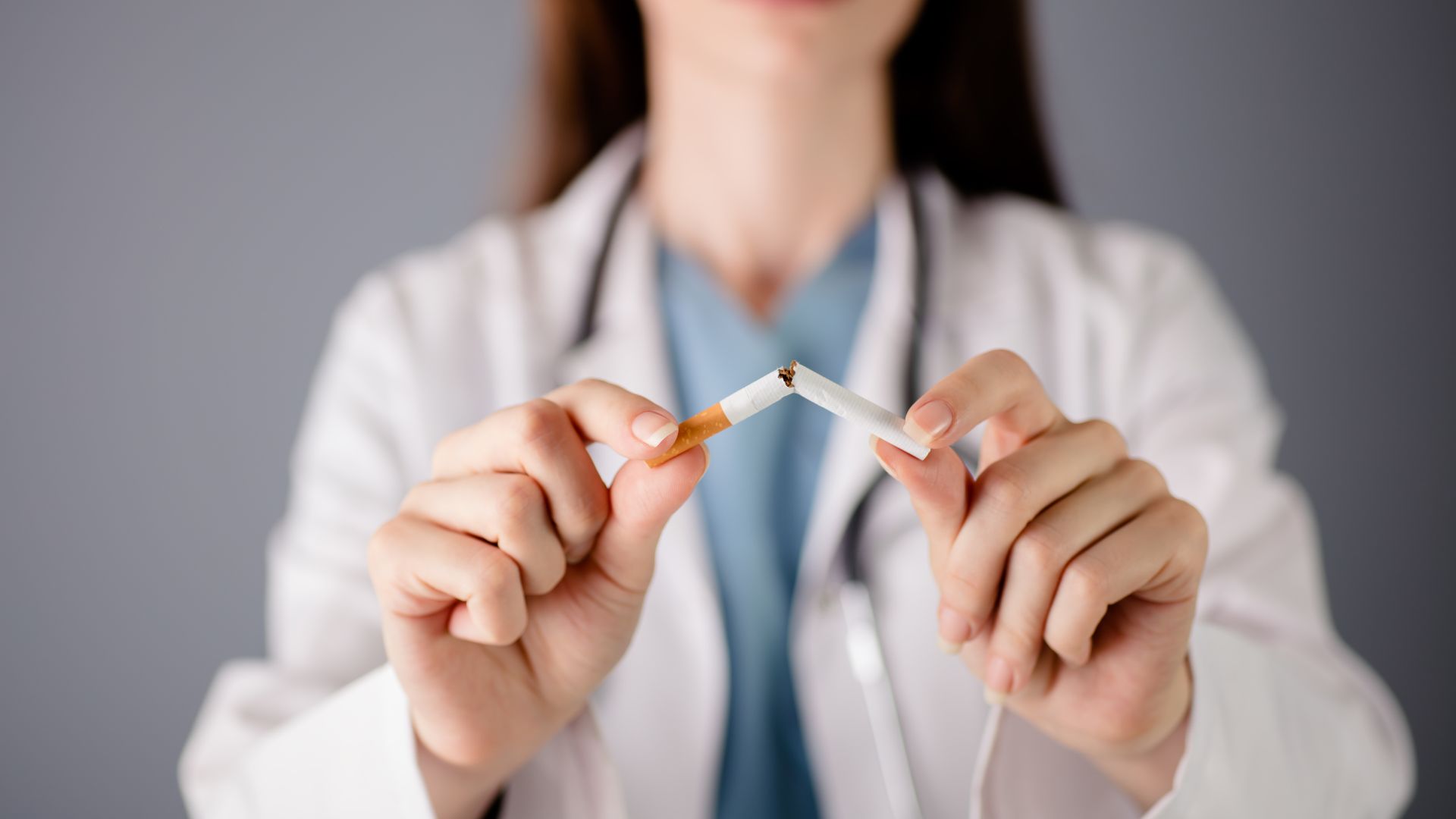
Infertility can be an emotionally taxing experience, but In Vitro Fertilization (IVF) offers a ray of hope for many couples struggling to conceive.
However, certain lifestyle factors like smoking can significantly undermine the success of this advanced fertility treatment.
The harmful effects of smoking extend to both male and female reproductive health, making quitting a crucial step for improving IVF outcomes.
Key Takeaways
| Takeaway |
|---|
| Smoking damages egg and sperm quality, impairing fertilization and embryo development in IVF. |
| Smoking negatively impacts the uterine environment, reducing embryo implantation rates. |
| Quitting smoking improves fertility and IVF success, with greater benefits the earlier it’s done before treatment. |
| Proven quitting strategies include nicotine replacement therapy, counseling, support groups, and medications. |
Smoking’s Detrimental Impact on Reproductive Health
The toxic compounds in cigarette smoke wreak havoc on both male and female fertility, creating obstacles at every stage of the IVF process.
- In Women:
- Reduced egg quality and quantity
- Potential depletion of ovarian reserve
- Earlier onset of menopause
- In Men:
- Decreased sperm count
- Impaired sperm motility
- Increased sperm DNA damage
Compromised egg and sperm health directly hinders fertilization rates and the development of viable embryos during IVF.
Furthermore, smoking damages the endometrium (uterine lining), hampering successful embryo implantation – a critical step for achieving pregnancy.
Even when implantation occurs, smoking elevates miscarriage risks due to its adverse effects on the placenta and fetal development.
Have you noticed any changes in your menstrual cycle or other fertility indicators since starting or quitting smoking? Share your experiences in the comments.
Smoking’s Effect on IVF Outcomes
While the negative impact of smoking on overall fertility is well-documented, any amount of smoking during an active IVF cycle can severely compromise treatment success.
Every cigarette exposes the body to a fresh onslaught of toxins, undermining reproductive health.
- A Dutch study of over 8,000 IVF patients found that smoking just one cigarette daily reduced live birth rates by 28%. [Source: https://www.ncbi.nlm.nih.gov/pubmed/17572919]
- Smoking increases ectopic pregnancy risks, where the embryo implants outside the uterus – a life-threatening condition.
- Continued smoking during pregnancy exposes the developing fetus to harmful substances, heightening risks of birth defects and growth abnormalities.
Importantly, secondhand smoke is equally detrimental. If your partner smokes, encourage them to quit alongside you to optimize your combined fertility and IVF prospects.
Are you aware of any specific policies or support systems in place at your IVF clinic to aid smoking cessation? Let us know in the comments.
The Power of Quitting: Reclaiming Your Fertility
While quitting smoking is undoubtedly challenging, it is one of the most impactful choices you can make to increase your chances of IVF success and safeguard your future child’s health.
- Timing is key: Quitting at least 3 months before starting IVF allows your body ample recovery time, reversing some smoking-induced damage.
- In women: Egg quality and ovarian function can improve after quitting.
- In men: Sperm parameters like count, motility, and DNA integrity show enhancements.
- The uterine environment becomes more conducive to embryo implantation after eliminating smoke exposure.
- Quitting reduces miscarriage risks and promotes a healthier full-term pregnancy if conceived through IVF.
No matter where you are in your fertility journey, it’s never too late to quit smoking and boost your prospects for IVF success and a healthy pregnancy.
What has motivated or inspired you to quit smoking in preparation for IVF? Share your motivations in the comments to inspire others.
Comprehensive Guide to Quitting Smoking for IVF Success
Proven Strategies for Quitting Smoking
While quitting smoking is undoubtedly challenging, there are several evidence-based strategies that can significantly increase your chances of success.
The key is often a combination of approaches tailored to your individual needs and preferences.
Nicotine Replacement Therapy (NRT)
| NRT Option | Description |
|---|---|
| Nicotine Patches | Provide a steady dose of nicotine through the skin |
| Nicotine Gum | Allows controlled nicotine absorption through the mouth |
| Nicotine Lozenges | Similar to gum, but in lozenge form for oral absorption |
| Nicotine Inhalers/Nasal Sprays | Deliver nicotine through the nose or lungs |
NRT works by providing controlled doses of nicotine to manage withdrawal symptoms and cravings, without the harmful toxins found in cigarettes. For more details on NRT options, refer to the CDC’s guide.
Behavioral Counseling and Support Groups
- Individual counseling helps identify triggers, develop coping strategies, and build quitting skills.
- Support groups foster a sense of community and accountability, providing encouragement from others on a similar journey.
- Your fertility clinic, local hospitals, or online resources can provide referrals to counselors and support groups tailored to fertility and smoking cessation.
Prescription Medications
- Varenicline (Chantix) and Bupropion (Wellbutrin) are prescription medications that can reduce nicotine cravings and withdrawal symptoms.
- These may be particularly helpful for individuals with heavier nicotine dependence.
- Always consult your doctor to discuss the suitability and safety of these medications, especially when undergoing IVF treatment.
Share your quitting journey on social media using the hashtag #QuitForIVF and inspire others facing similar challenges. Tag us and share your tips, milestones, and words of encouragement!
The Importance of Partner and Family Support
Quitting smoking can be an immense challenge, but having a strong support system can make a significant difference in your journey.
Involve your partner, family, and close friends in your decision to quit, and don’t hesitate to ask for their patience, understanding, and encouragement.
- Explain the reasons behind your decision, emphasizing the impact it can have on your IVF success and your future child’s health.
- Ask them not to smoke around you and provide moral support during cravings or stress.
- Consider involving your partner, as secondhand smoke hinders fertility and IVF outcomes.
- For insights on navigating the emotional journey with your partner, check our guide.
Share your partner’s support stories using #PartnerSupportForIVF. Let others know how loved ones encouraged you.
Timing is Key: When to Quit for Optimal IVF Success
While quitting at any point benefits overall health, timing in relation to your IVF cycle impacts success chances.
Ideal Scenario: Quit smoking at least 3 months before starting your IVF treatment. This allows recovery from smoking’s effects, maximizing positive outcomes.
Benefits of Early Cessation:
- For Women: Improved egg quality/quantity and ovarian function for better embryo development.
- For Men: Enhanced sperm count, motility, and DNA integrity for successful fertilization.
- More conducive uterine environment for embryo implantation post smoke exposure.
- Reduced miscarriage risk and healthier full-term pregnancy if conceived through IVF.
Even if you’ve started IVF, quitting is still beneficial. But the earlier, the greater the advantages.
Share your quit date using #CountdownToQuit. Let us know how you’re preparing for your IVF cycle.
Visualizing the Impact: Smoking and IVF Success Rates
Scientific literature clearly shows smoking’s detrimental effect on IVF live birth rates:
You’re right, let me format the data visualization using markdown:
Visualizing the Impact: Smoking and IVF Success Rates
Scientific literature clearly shows smoking’s detrimental effect on IVF live birth rates:
| Live Birth Rate (%) | % |
|---|---|
| Non-smokers | 35.1% |
| Smokers | 13% |
The stark contrast in the live birth rates is evident – non-smokers have a substantially higher rate of 35.1%, while smokers have a significantly lower rate of just 13%.
This disparity highlights the profound impact smoking has on diminishing IVF treatment success.
Note that individual success may vary based on factors like age, overall health, and specific clinic protocols. However, quitting smoking dramatically improves your chances of achieving a successful IVF pregnancy.
Beyond Quitting: Additional Lifestyle Factors for IVF Success
While quitting smoking crucially improves IVF outcomes, consider other factors:
- Maintain a Healthy Weight: Being over/underweight can negatively impact fertility and IVF. Aim for a normal BMI through balanced diet and exercise.
- Limit Alcohol and Caffeine: Excessive intake disrupts hormones and impairs reproductive health. Moderation is key.
- Manage Stress: High stress interferes with ovulation and sperm production. Explore stress-reducers like yoga, meditation, or counseling.
- Get Adequate Sleep: Sufficient sleep (7-9 hours) is vital for hormonal regulation and well-being.
- Avoid Environmental Toxins: Certain chemicals and pollutants harm reproductive health. Create a fertility-friendly home.
The American Society for Reproductive Medicine provides useful lifestyle guidance for improving fertility.
Quitting smoking is significant but part of an approach optimizing fertility and IVF success.
Key Takeaways: Empowering Your Journey to Parenthood
- Smoking significantly reduces fertility, compromising egg/sperm quality, embryo development, and uterine environment.
- Any smoking during IVF severely diminishes live birth chances, with up to 28% reduction for one cigarette daily.
- Quitting, preferably ≥3 months before IVF, allows healing, improving egg/sperm health, uterine lining, and reducing miscarriage risk.
- Proven quitting strategies: Nicotine replacement, counseling, support groups, medications.
- Partner and family support are crucial for encouragement and a smoke-free environment.
- Healthy lifestyle aids success: Balanced nutrition, stress management, toxin avoidance.
Additional Quitting Resources:
- Smokefree.gov – Offers a wealth of quit tools, text messaging support, and a mobile app.
- American Lung Association – Provides a quit helpline, local support programs, and online resources.
- National Cancer Institute Quitline: 1-800-QUIT-NOW
- The Mayo Clinic’s guide on Fertility and Smoking.
- BecomeAnEX online community.
Find IVF Support Near You:
As you embark on your smoke-free journey towards IVF success, consider exploring local support resources and IVF clinics in your area:
- IVF Centers in Pimpri-Chinchwad
- IVF Centers in Patna
- IVF Centers in Ludhiana
- IVF Centers in Agra
- IVF Centers in Varanasi
- IVF Centers in Dhanbad
- IVF Centers in Prayagraj
- IVF Centers in Jabalpur
- IVF Centers in Vijayawada
- IVF Centers in Raipur
By understanding the risks, taking proactive steps, utilizing reputable resources, and seeking local support, you can significantly improve your IVF success chances. Celebrate milestones and stay committed to building a healthy family.






